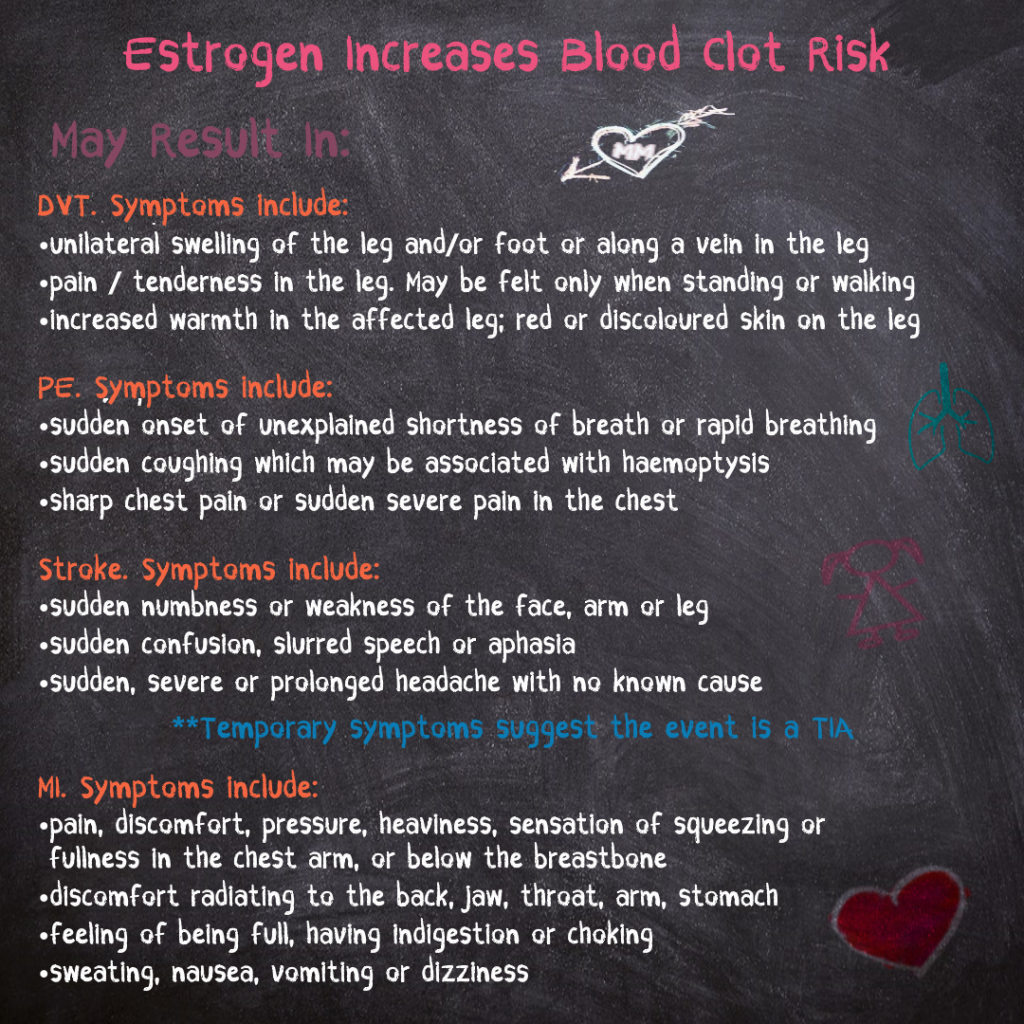
From what I’ve seen, the most common “system” most health professionals’ use is, you warn on a few common AEs and 1 or 2 rare ones. Common AEs chosen are the ones patients will most likely experience. E.g. dizziness when starting a blood pressure medicine. And rare adverse AEs seem to be chosen base on how serious or unique it’s to that medicine. E.g. psychiatric disorders (e.g. depression, attempted suicide) when starting oral isotretinoin.
This is a fine system to use. A good addition to this system is to include AEs that are serious but may masquerade as a more common or less severe events.
For example, let’s look at the headache. It’s a very common thing people experience. According to the World Health Organization (WHO) “Half to three quarters of adults aged 18–65 years in the world have had headache in the last year and, among those individuals, 30% or more have reported migraine.” Most of these headaches are not dangerous.
Now let’s look at estrogen. It doesn’t matter if it’s from a combined oral contraceptive (COC) or hormone replacement therapy (HRT), it increases the risk of blood clots.
Blood clots can produce alarming symptoms and severe events. For example deep vein thrombosis (DVT), this may present as tenderness or pain and swelling in a leg. Or pulmonary embolism (PE), this may lead to the symptoms of breathing difficulties and chest pains.
Blood clots may also cause transient ischaemic attacks (TIAs); also called mini-strokes or temporary strokes. This may present as a sudden, severe or prolonged headache, which may be easily mistaken as a common non-dangerous headache.
There are of course, many other AEs that are serious but can be mistaken for a more common or less severe events. E.g. for many people antibiotics are already associated with GI upset. So they may not realise that diarrhoea from clindamycin (or other antibiotics) may be clostridium difficile-associated disease.
Take note of the symptoms of serious AEs. If they can be mistaken for a common (less serious) ailment, be sure to let your patients know.
If you like this post you might like to check out our website and book
MemoriseMedicine.Com. 100s of medical flashcards and study tips. Perfect for part-1 of the intern oral exam. 100% FREE!
‘Passing The Pharmacy Australia Intern Oral Exam: The Easy way.’ Amazon bestseller. Study tips. Exam strategies. 16 practice exams. Available here, Amazon Affiliate link: https://amzn.to/2YEyOfs
Affiliate Disclosure: As an Amazon Associate I earn from qualifying purchases. This comes at no charge to you. And helps with the development of Memorise Medicine.
Originally posted on Instagram.